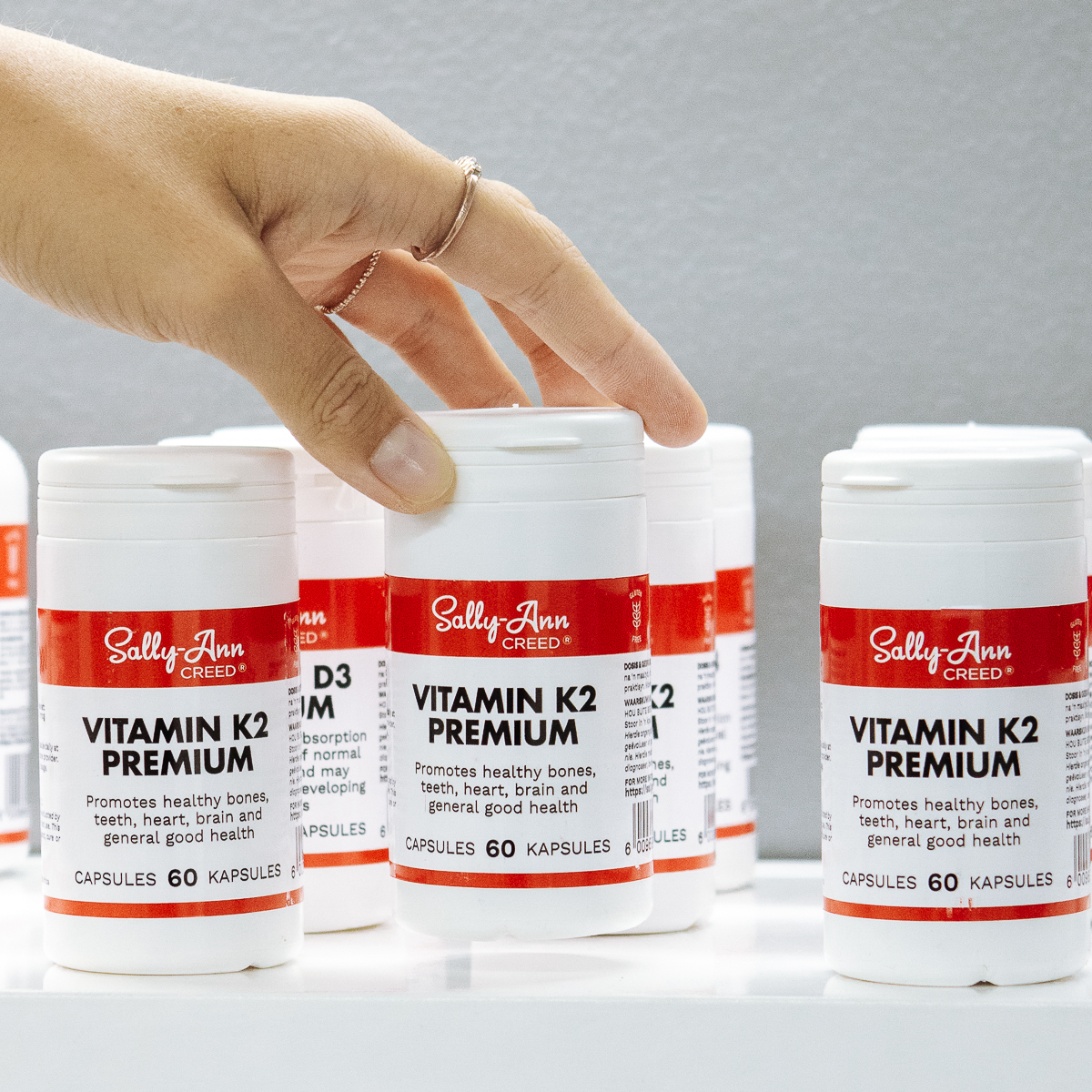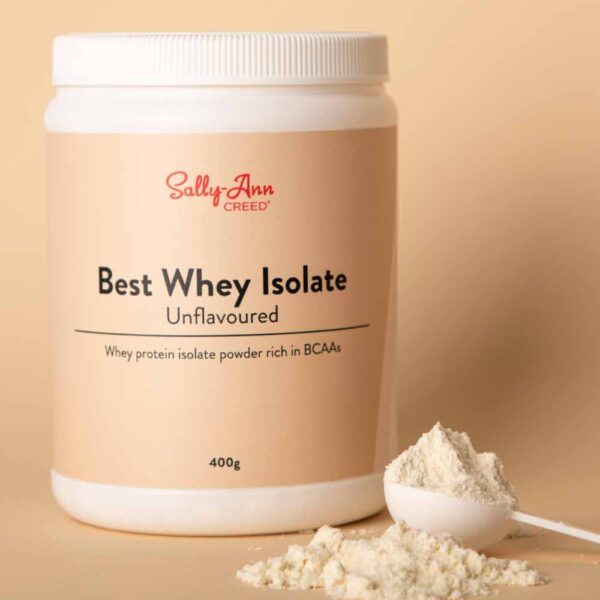The Body’s Exquisite Dance of Synergy
Part 1/3
Our human bodies are marvellously created. Everything works together in the most incredibly designed way. In the truest sense of the word, the body is an awesome creation.
For the purpose of this series. We’ll concentrate on bones and heart which are of prime importance in remaining healthy and vital all our lives.
There are some very important nutrients which go into this particular ‘dance’ and work synergistically with each other to perform the perfect result.
One of these is vitamin K2. Little known and little spoken about but a crucial compound in the effort to maintain full body health particularly when it comes to cardiovascular function and our bones.
The interesting thing about vitamin K2 is that it’s actually all about calcium. Both calcium and vitamin K2 are micronutrients found in the human diet. They are also vital to life itself but getting them in the correct amount and ratio is the trick.
We believe in today’s world vitamin K is an essential and much needed supplement and one we suggest is taken every single day. If you are compromised in your health in any way – diabetic, heart disease, obese, Crohn’s disease, celiac, IBS, lactose intolerant, to name a few – you will not be absorbing your nutrients optimally meaning you will suffer deficiency symptoms of certain nutrients such as vitamin K2, and health issues may begin to manifest.
Calcium provides structure and support to bones and teeth and facilitates the necessary signalling of our electrical system within our bodies allowing for the release of neurotransmitters and hormones so the body can carry out certain functions.
So calcium is an important mineral without which our body would have no communication systems. Vitamin K2 is equally important in that it provides the indispensable catalyst which binds calcium making it usable for the body’s bone structure.
Part 2/3
The mineral calcium reacts with osteocalcin which is a protein found in the extracellular matrix of bone and dentine. Involved in regulating mineralisation in bones, teeth and calcium storage in bone. When the body has need for extra calcium, the bone will release it for that purpose. So it is constantly stored, but released in a usable form when needed. But calcium is not all there is to bone. There are other very important players without which calcium would not work. These other crucial components include magnesium, vitamin D3, vitamin K, collagen and vitamin A.
Vitamin K though is a key nutrient here.
Especially as it’s not that freely available in nature. Vitamin K1 is responsible for normalising blood clotting which is completely different to the role played by vitamin K2. This variant controls where calcium goes into the bones for a healthy matrix if you have enough. Without enough it will end up in soft tissue and arteries. We cannot make sufficient vitamin K2, nor can we store it – so eating it daily is vitally important, and for this reason I believe a supplement is imperative for a healthy heart and bone structure. Too much calcium is dangerous, and in some causes heart irregularities.
We get more than enough calcium in our food, but we almost certainly don’t get enough vitamin K2.
If K2 is in short supply the calcium will end up in the arteries causing atherosclerosis or hardening of the arteries and in soft tissue. Vitamin K2 works with calcium, vitamin D3, magnesium and vitamin A to prevent bone loss and fractures and to form a strong bone matrix. Just as too little vitamin K2 is an issue, too much calcium is a very real problem. Without K2 to direct the calcium into bone, it can build up in heart valves, joints, kidneys, breast and prostate. Virtually all processed food is ‘fortified’ with calcium, and it is abundant in our fresh food supply too – we are awash with calcium! We do not need yet more calcium.
What you might think of doing is adding in vitamin K2 and D3 – which lead to better bone and heart health, increasing the uptake of calcium and helping to put it into the correct place, removing it from where it is not needed.
Collagen is an additional component much overlooked in the mix which is a natural compound which forms bone framework. Having good gut health is pivotal to every single facet of health, and not in a small way to bones. Good gut function will allow for small amounts of vitamin K to be produced and absorbed, together with all the other nutrients in food.
Part 3/3
Magnesium of course is vital too for bone and heart health, and in fact for full-body health. When we have too much calcium, our magnesium is too low, and vice versa. You can be pretty certain though that you have probably got more calcium than you need and less magnesium than is needed. It’s a bit like a see-saw – when one is up the other is often down. Magnesium stimulates calcitonin from the parathyroid gland. This regulates bone building and breakdown. Magnesium is also the essential co-factor needed to convert vitamin D into its active form. While too much calcium is dangerous to the point of causing cardiac arrhythmia too much magnesium will simply cause a little diarrhoea and is harmless. It is relaxing, calming and generally known as a sleep mineral.
If you wish to slow the rate of loss of bone, and even build new bone, then vitamin D3, magnesium, vitamin K2 and collagen are a wonderful ‘recipe’ for strong bones. Do not take vitamin K1, simply eat green vegetables in which it is abundant. It’s difficult to get enough magnesium, vitamin D3, vitamin K2 and collagen in your diet these days. This is due to a number of reasons so I recommend taking these daily for cardiovascular and skeletal protection. Vitamin A is abundant in liver, butter and eggs, and not found in the animal kingdom. Beta-carotene while a wonderful antioxidant has been shown to be extremely poorly converted to vitamin A if at all in the human body.
Bottom line for bones, heart and good health.
Take the following:
- Vitamin D
- Vitamin K2
- Collagen
- Magnesium
Remember, don’t take any calcium, and to get your vitamin A, eat eggs, butter and liver. Voila.
All the supplements above are available from our online store at https://sallyanncreed.co.za/shop/.
Yours in Health and Wellness
Join our Instagram Page @SallyAnn_Creed and subscribe to our Newsletter https://mailchi.mp/sallyanncreed/january-2021-newsletter for more insightful Health and Wellness information. This post is subject to our general disclaimer https://sallyanncreed.co.za/disclaimer/.
You can simply click on the name of each product mentioned above (in bold) and a hyperlink will take you directly to the product for an easy purchase.
Originally published on https://www.facebook.com/SallyAnnCreedSA/ on 20 November 2017.
Instagram: @SallyAnn_Creed
Facebook: @SallyAnnCreedSA







